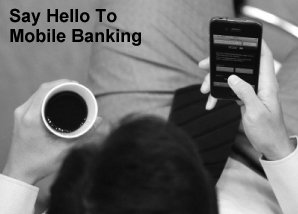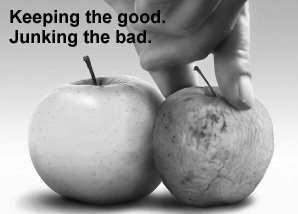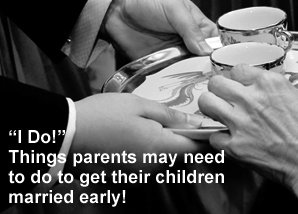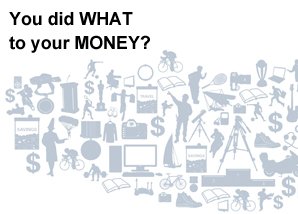Going for the long-haul.
Banking on your relationships.
It used to be no man is an island. But now, in our day of social networks, it seems that each man is a web of connections.
Relationships are all around us – at home, at work, on the internet. Some are fleeting, some are “friends” only on social networks and then, there are those relationships that matter, ones that we wish to hold on to for a lifetime. These are the ones we pay attention to and nurture. Like a good investment, relationships may also flourish when we invest our time and effort in it.
Investments in relationships are not limited to the monetary kind (though a well-chosen, luxurious gift never hurts) but includes our actions, thoughts and affection. It could be in the form of doing something positive for or with the other person, expression of affection, helping them through tough situations and more.
Besides that, the qualities we bring to a relationship may have a big impact on its growth. What are some of the most essential concepts when it comes to making relationships last? Let’s look at a few keys to long-term relationship success.
Trust is the first and perhaps most important predictor of long-term relational success. Trust creates a safe and secure environment – physically and emotionally – for both parties where they can open up, share, work together and build together1.
Being able to express their needs, desires, ideas and values openly and honestly, without fear of rejection or insecurity, is a sign of a healthy relationship. To foster communication, a couple may want to keep an open line of communication and always be approachable to their partner2.
Having shared core values can help strengthen a couple’s relationship as it may possibly reduce friction and help them make decisions based on their shared values. Core values could mean being on the same page on issues such as parenting, finances, etc3.
Every couple will face disagreements and crises in their life together. Learning how to handle the conflict and problem solve will go far in helping a couple strengthen their relationship. The key is to focus on resolving the issue rather than attacking the person. Most importantly, these difficulties are opportunities for couples to learn together and grow closer1.
Commitment means to bind oneself to a course of action or someone.4 It takes commitment to nurture a stable and long-lasting relationship. Commitment helps a couple become resilient in weathering disappointments and life’s ups and downs.5 Couples that stick together through thick and thin may often reap more benefits (e.g. physically healthier, mentally and emotionally happier, more financially stable) from their relationship over the long-term.6
For the relationship to thrive, you may need to regularly “invest” in it to ensure that the emotional bank is amply filled and you enjoy the full benefits of a healthy relationship.
What about the other relationships in your life?
Whether you are aware of it or not, you have relationship accounts with everyone you know. Some may offer straightforward returns such as an employer-employee relationship – you do X amount of work for Y amount of money. In others, you may reap “returns” in terms of personal benefits such as emotional fulfillment, mental and social stimulation, companionship and more. Some relationships may lead to open doors such as job offers, business opportunities and others.7
The same can be applied to a relationship with your bank. Staying true to a single bank may provide many of the benefits you may come to expect from a committed relationship between two people – a higher level of trust and priority in each other’s lives.8
Let’s take a look at 2 persons who may have the same financial situation but chose to handle their relationships with their banks differently.
Danny and John are customers with HSBC, each with an existing home loan worth RM300,000, taken up 5 years ago. Now, they both have RM200,000 in cash and are looking at different investment options from various banks. (These scenarios are for illustrative purposes only.)
Danny decides that the old adage of “not putting all your eggs in one basket” is best and chooses to spread his investment across different banks. He saves RM40,000 in a Fixed Deposit with HSBC (at the prevailing interest rate). He then goes to Bank B and asks about their unit trust plans. He decides to invest RM80,000 of his stockpile into it. However, because he is new to Bank B, he needs to open an account for his dividends. The account in Bank B will cost him RM10 every month to maintain. He then does the same at Bank C. While there is nothing wrong with this strategy, this move did not give Danny preferential treatment at any of the banks because he is new at two of them and did not increase his investments substantially at HSBC. Furthermore, he has acquired the added costs of maintaining the new accounts, not to mention the hassle of running to three different banks to manage his finances.
John, who is a Premier customer, on the other hand, makes an appointment with HSBC’s Relationship Manager. He undergoes an investment profiling with his Relationship Manager to understand his investment outlook and risk appetite. His Relationship Manager helps him further clarify his financial goals and helps him select investments that are best suited for him. John then decides to place RM100,000 in a short-term Structured Investment and RM100,000 in an equity unit trust fund. He has the option to switch for free to another equity unit trust fund to suit his investment objectives. (Please refer to the unit trust fund prospectus on the terms and conditions for the switch).
At the same time, while his Relationship Manager was looking at his banking accounts, he noted that his home loan’s lock-in period was over and helped him restructure his loan at the current lower rates. With his Total Relationship Balance amounting to RM500,000, John was able to waive his monthly account fee, enjoy preferential rates on his home loan and enjoy priority service at HSBC.
For the same amount of funds as Danny, John’s experience was more customised to his needs. John had personal guidance from his Relationship Manager which helped him feel more assured about his investment choices. HSBC’s wealth dashboard, a wealth portfolio management tool also gave him control and confidence to monitor, review and grow his wealth for the long term. John was able to enjoy world class solutions tailored to his needs, simply by choosing to develop his relationship with his bank.
Disclaimer: All characters and scenarios appearing in this article are fictitious.
In a nutshell, it may be beneficial to invest in the relationship that helps you invest. Building a long-term relationship with your bank may reap benefits as follows8:
- You may be able to negotiate better interest rates and loan terms.
- You may enjoy fee waivers, whenever applicable.
- A higher level of customer service.
- As the bank is familiar with your financial situation, you may enjoy greater convenience such as potentially faster approvals for applications such as loan/mortgage (as it may take less time to gather your information and vet the accuracy of what you report).
- You may enjoy the convenience of a streamlined financial management conducted via one bank
- You may be able to take advantage of your bank’s long-term insight and planning via portfolio reviews and market updates.
How to build a long term relationship with your bank?
The first step in building a relationship with your bank is to see it as someone who understands your financial needs and is your best possible partner in terms of offering solutions to your financial problems. The stronger your relationship is with your bank, the better it will be able to understand your financial needs and provide effective solutions to help grow your wealth.9
Secondly, you may wish to share your financial goals and data, with your bank. Keep your banker in the loop about your financial standing, cash flow, change in life situation, if any, etc. With pertinent information, your banker may be able to better advise you on how to manage your finances.9
Thirdly, build trust. Building a relationship with your bank is a two-way street. Your bank trusts you to repay your loans, and you trust them to provide the best financial services possible. The stronger the bond of trust, the more financially beneficial that relationship becomes for both parties.8
Last but not least, commit to the relationship for the long-term. Over time, your demonstration of financial fitness may open up even more products, services and privileges for you. Take time to evaluate new products and services provided by the bank too to further cement your relationship with it.10
Like any relationship, you will get out of it what you put into it. Invest in your banking relationship and it may bring you returns, for now and a long time to come.
Does your Bank do this?
Before you start a long-term relationship, you may wish to determine whether your bank
is a right fit. Evaluate your bank with our 10-point checklist below:
-
Does your bank engage in conversation with you to discover your financial needs? Yes/No
-
Does it help you identify your financial goals and understand the potential risks that might prevent you from fully realising those goals? Yes/No
-
Does it recommend products and services that fit your needs? Yes/No
-
Does it act to ensure that your instructions are executed and followed up on? Yes/No
-
Does it serve you by keeping you up to date with how your wealth is being managed and any action you need to take? Yes/No
-
Does it offer you all round financial solutions for every stage of your life, eg. protection for family, education fund for children, retirement planning, wealth management, legacy planning? Yes/No
-
Does it offer financial insight and expertise you can trust? Yes/No
-
Does it connect you to investment opportunities around the globe? Yes/No
-
Does it deliver services to you in a manner that provides speed, ease, certainty and empathy? Yes/No
-
Does it provide useful tools to help you review your investments, track your goals and mitigate risks? Yes/No
Talk to HSBC today to find out how we are poised to build a better long-term banking relationship with you.
Sources:
1 PsychologyToday.com, “7 Keys to Long-Term Relationship Success” October 7, 2012.
2 TheEmpowerRoom.com, “Relationships are Like Bank Accounts” October 23, 2013.
3 PsychologyToday.com, “7 Keys to a Healthy and Happy Relationship”, January 2, 2012.
4 www.vocabulary.com.
5 HuffingtonPost.com, “Tips On Building Commitment In A Relationship”, August 4, 2012.
6 Coupleforlife.com, “Commitment: The Path to Relationship Happiness” (undated).
7 PlantingMoneySeeds.com, “Are You Investing in Your Relationships?”, undated.
8 Huffington Post, “5 Reasons Why It Pays to Be Best Friends With Your Bank”, July 12, 2013.
9 Legal Zoom, “The Importance of Building a Solid Relationship with a Lender”, June 2012.
10 AllBusiness.com, “How to Build a Better Relationship with Your Bank”, undated.
March 2014


 LIKE THIS ARTICLE?
LIKE THIS ARTICLE?





















